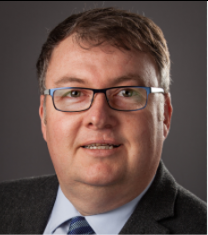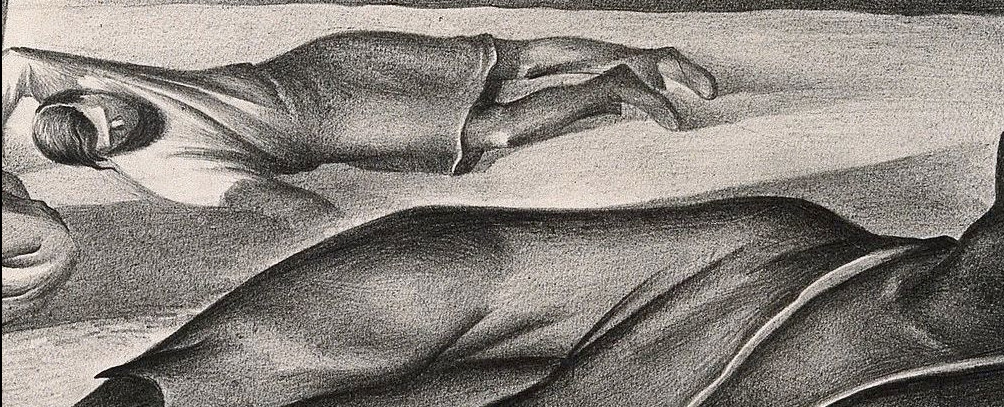By The Revd Peter Butchers
I always resisted further theological study as my role as a local Baptist minister had always felt so time-consuming. Furthermore, I had never felt the Master’s programme leaflets that crossed my desk over the years were really all that relevant to either my own spiritual formation or ministry in the local church. My interest was in popular and world culture and their intersection with theology. I never thought that there would be an academic course that would give me the space to explore these themes. Then I stumbled across the Sarum MA in Theology, Imagination and Culture (MATIC).
The structure of the MATIC suited my church responsibilities very well, taking a Monday to Thursday away from Church life to attend the teaching sessions three times a year. The intensive teaching weeks were always interactive, informative, and challenging; a mix of presentations by leading academics and peer-led conversations. I always got back on the train to Sussex exhausted but hugely thankful for the interesting people I had met and the new thinking to which I had been exposed.
Each intensive teaching week requires a written assignment based on the theme of the week. Students receive a Module handbook which usually has around ten assignment questions from which to choose, but course leaders are open to negotiation on the question to dovetail with the student’s own interests. This meant that I was able to follow my own trails and shape my own research questions, which was wonderful, but the downside was that it was difficult to find a fellow student who was studying the same topic. However, tutors are always on hand to recommend books and articles, and help students shape their work. Following my own interests, I wrote assignments on C S Lewis’s imagination and theological practice; consumerism as an opportunity for mission; the place of incarnation in the digital world; the impact of short-term mission in engaging indigenous communities with the Bible in a postcolonial context; and the intersection of mission and mysticism.
The first two years followed this pattern — intensive teaching week and then writing an assignment — and through this process of study I honed my interests ready for the third year, the dissertation.
For my dissertation I combined two themes that had piqued my interest in the previous two years of study; digital theology and the Christian pastoral approach to death and dying. In local church ministry I saw a disconnect between what Helen Cameron calls the formal voice of Christian eschatologies and the operant voice of those facing death or bereavement.[1] Christian eschatologies, almost without exception, offer concrete and embodied futures on account of the resurrected Christ.
In contrast, much of the operant voices around death and dying articulate Christian hope in non-concrete, ethereal and disembodied ways with language which is euphemistic and vague. I was interested to discover why this disconnect has happened and how it might be addressed in pastoral practice. Meanwhile, in popular culture there are many current examples of the afterlife which are depicted as seemingly certain, embodied, clear and hopeful. Netflix’s Black Mirror episode San Junipero is a good example of this. So, my inquiry was how cultural tropes, like those found in Black Mirror, might help bridge the gap between what academic theology espouses and what the everyday Christian believes. It was a fascinating exploration of platonic philosophy, digital theology and eschatology, and pastoral practice around death and dying. I could never have imagined that a Netflix series could prove so useful in pastoral practice!
My interest was in popular and world culture and their intersection with theology. I never thought that there would be an academic course that would give me the space to explore these themes. Then I stumbled across the Sarum MA in Theology, Imagination and Culture.
Combining study with full time ministry is not for the faint of heart, and some careful diary planning is essential. Other students had different responsibilities to me and could spend different amounts of time on their studies, so it was important to keep managing my own expectations. Yet, the course allowed me the opportunity to step off the hamster wheel of always preparing for Sunday and think about some wider concepts and themes with which previously I did not feel I had the space, or support, to engage. In me, at least, the Sarum College community has fulfilled their task to nourish the human spirit. The MA in Theology, Imagination and Culture has inspired me as much as challenged me. The course has re-energised me to hold theology and popular culture together in day-to-day ministry, enriching my life, and, I trust, my ministry.
[1] Helen Cameron, ed., Talking about God in Practice: Theological Action Research and Practical Theology (London: SCM Press, 2010).
 The Revd Peter Butchers recently completed his MA in Theology, Imagination and Culture. He is a Baptist Minister at The Hub church in Upper Beeding, West Sussex.
The Revd Peter Butchers recently completed his MA in Theology, Imagination and Culture. He is a Baptist Minister at The Hub church in Upper Beeding, West Sussex.

Leave a Reply